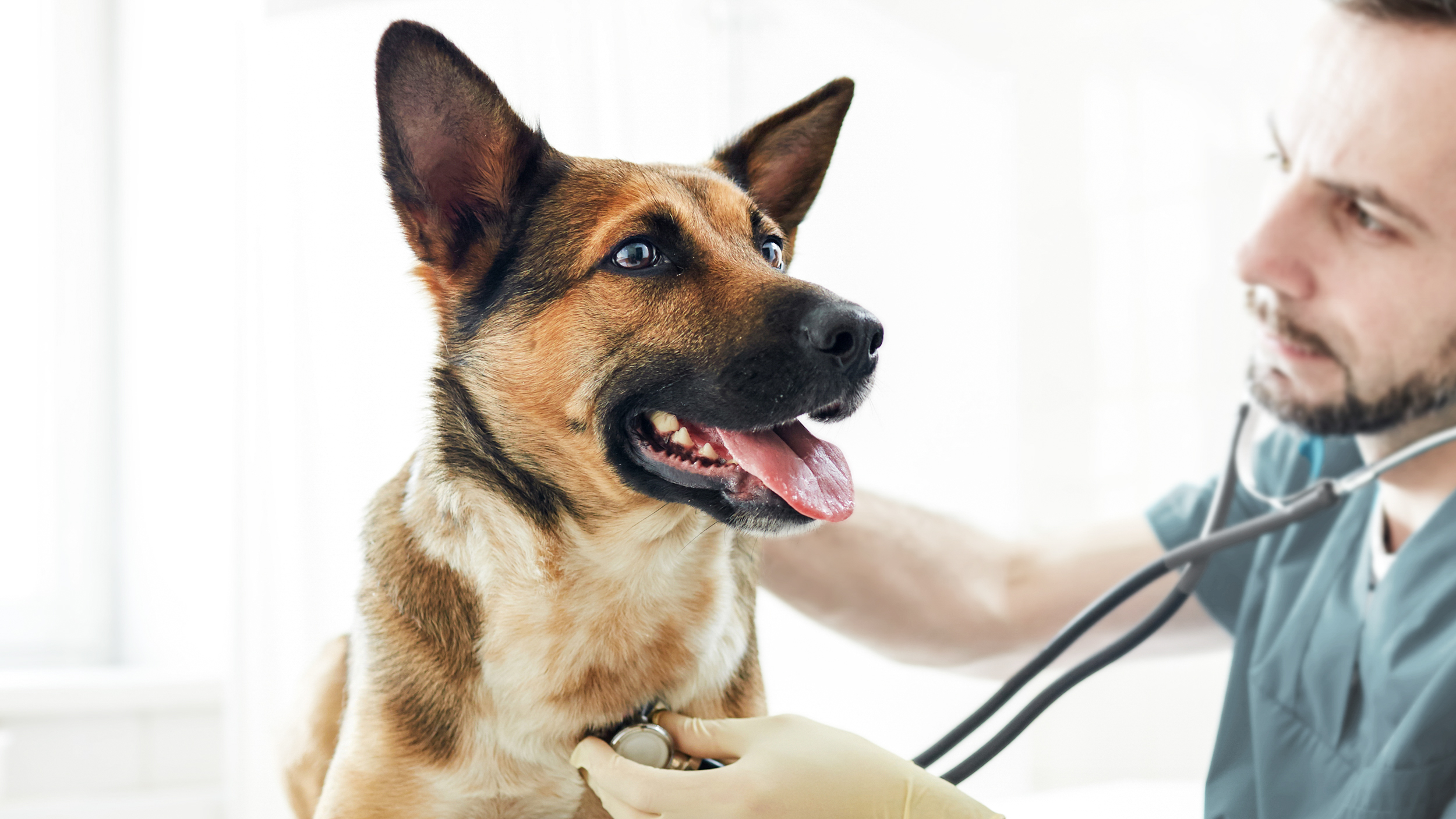Bladder problems in dogs

The first step to recognizing if your dog is unwell or suffering from a urinary problem is understanding the symptoms. Every dog is different, but if you see your dog displaying one of these common symptoms, it’s essential you visit your veterinarian.
Symptoms and causes of urolithiasis in dogs
Just under 20% of all urinary problems presented to vets are diagnosed as urolithiasis, also known as the formation of "stones" in the bladder or urinary tract. These stones are a build-up of different minerals that are present in your dog’s urine; if the concentration of minerals is too great, their body struggles to get rid of them and they start to crystallize.
If your dog is suffering from stones, it might struggle to urinate or find urination painful because the stone is blocking their urinary tract. Certain dogs are more prone to urolithiasis, such as smaller breeds; they have lower volumes of urine and urinate less frequently, which means the concentration of chemicals is higher. It’s also more common in mature and male dogs.
Treatments for dogs with urolithiasis
Depending on the severity of the problem, your veterinarian may decide to remove the stone surgically to prevent your dog experiencing further discomfort. However, dietary and lifestyle changes are commonly used to help dissolve any stones and prevent further ones from forming.
A high moisture diet – such as from wet food – helps to dilute your dog’s urine and prevent a build-up of minerals; you should also encourage your dog to drink plenty of water and let them out to urinate frequently. Specialized diets can also help change the pH level of your dog’s urine and prevent certain types of stone forming.

Symptoms, causes and treatments of UTIs in dogs
Lower urinary tract infections, or UTIs, are a frequent diagnosis of urinary problems, particularly among female dogs. An infection normally occurs when bacteria from debris or bodily fluids enters the urinary tract accidentally, although the infection can be a symptom of a weakened immune system. UTIs also occur if your dog has a chronic illness, such as kidney or bladder disease or diabetes.
If your dog has a UTI, it will attempt to urinate frequently, often straining to do so and not necessarily being able to. Their urine might be cloudy or bloody, and they may dribble urine. They might also lick around the urinary opening to try and alleviate any irritation. In severe cases, your dog may also have a fever.
Your veterinarian will conduct a thorough examination to determine the cause of your dog’s UTI. If it is an infection, they will be treated with antibiotics. You should also encourage your dog to drink plenty of water so they are urinating frequently.
Symptoms, causes and treatments of bladder issues in your dog
Bladder problems are common in dogs, and are often related to UTIs and urolithiasis. The bladder is responsible for storing urine, with muscles connected to the bladder signalling to your dog when it’s time to urinate. Obstructions, including stones or growths, can interrupt these signals, while an infection can cause irritation and pain.
The symptoms of a bladder problem can include difficulty urinating, frequent attempts to urinate and weak or nonexistent urine when your dog is eventually successful. Your dog may have a distended abdomen and be in pain, and in severe cases may lose its appetite or vomit.
Treating bladder problems may involve your veterinarian putting a catheter on your dog to relieve their bladder while the veterinarian identifies the cause of the issue. A complete blockage of the urinary tract can be fatal, as your dog won’t be able to get rid of waste products, so your veterinarian may recommend surgery. They could also suggest medication and dietary changes to help manage any bladder problems in the future.
Because of importance of the urinary tract in ridding your dog of toxins, it’s crucial to contact your veterinarian if you notice any of the symptoms mentioned here. Your veterinarian will be able to determine the cause and provide you with the best care possible for your pet.
Related Articles

Find a vet
If you have any concerns about your dog’s health, consult a vet for professional advice.
Like & share this page